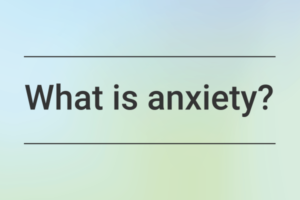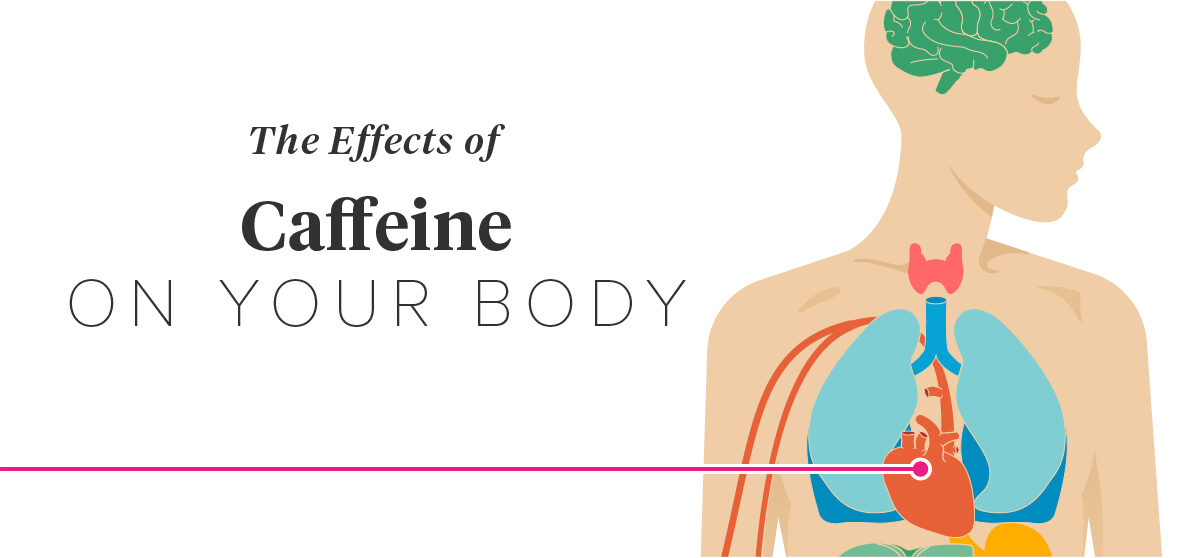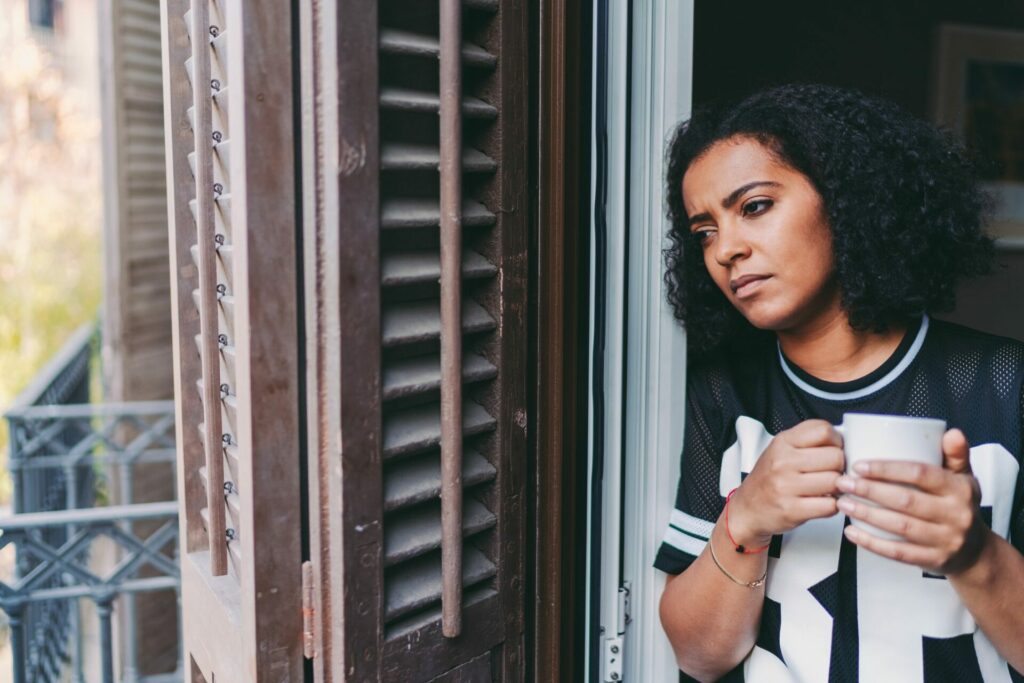There is a growing body of research linking caffeine intake to anxiety. In this article, we will explore the relationship between caffeine and anxiety, and look at ways that you can reduce your anxiety while still enjoying your morning cup of coffee or tea.
Contents
What Is Anxiety?

Anxiety is a feeling of worry, apprehension, and uneasiness. It can be mild and fleeting, or it can be more severe and persist for a long time.
This disorder is also a term used to describe a group of disorders characterized by intrusive thoughts, hyperarousal, and negative emotions. People with anxiety may feel like they can’t relax or get rest. They may also have trouble concentrating and making decisions.
Anxiety can be caused by various factors, including genetics and environment. Treatment typically involves addressing the cause of the anxiety.
Signs and symptoms of anxiety can vary, but they often include:
- worries about everyday activities, such as school or work
- frequent feelings of fear, panic, or stress
- difficulty sleeping or staying asleep
- a general feeling of restlessness or unease
- increased appetite or weight gain
- muscle tension or pain
- headache.
What is Caffeine?
Caffeine is a drug found in many beverages, foods, and supplements. It is a psychoactive stimulant that affects the central nervous system.
A 2012 study published in “Psychopharmacology” found that caffeine can reduce anxiety levels. The study also found that caffeine may be more effective than benzodiazepines in reducing anxiety symptoms.
Caffeine is also used as a drug to treat anxiety, depression, and other medical conditions. Sometimes there are many side effects when people take caffeine.
What Are The Effects of Caffeine On The Body?

Caffeine is a psychoactive drug found in many different beverages, such as coffee, tea, and soda. Caffeine is also commonly found in some over-the-counter medications. Also, Caffeine is typically consumed in moderate doses, which may not have any negative effects on the body. However, when consumed in high doses, caffeine can have negative effects on the body.
One of the most common side effects of caffeine is anxiety. In general, caffeine can increase anxiety levels by increasing adrenaline levels and causing a rush of energy. This increased energy can lead to an increased level of stress and anxiety. Additionally, caffeine can also cause changes in brain chemistry that lead to an increased level of anxiety.
Some of these impacts of caffeine may last for several hours after consuming caffeine. Therefore, individuals who consume large amounts of caffeine may experience an increased level of anxiety for several hours after drinking or using caffeine.
The impacts may be:
Memory Issues
One of the constant side effects of caffeine consumption is memory loss. Caffeine can cause temporary changes in the way the brain processes information, which can lead to problems with memory.
Caffeine can also interfere with the ability to recall information that was previously learned. Additionally, caffeine can make it difficult to focus and concentrate. As a result, people who consume large amounts of caffeine may have difficulty remembering important tasks or information.
Physical Effects
Caffeine can also have short- and long-term physical effects on the body. Short-term physical effects of caffeine include an increase in heart rate and blood pressure. Long-term physical effects of caffeine include an increased risk of developing various types of cancer, such as leukemia, ovarian cancer, and breast cancer.
Caffeine Can Impact Moods and Mental Status
Caffeine can also have an impact on mood and mental status. Also, Caffeine can cause an increase in energy levels and a rush of adrenaline. This increased energy can lead to an increased level of stress and anxiety. Additionally, caffeine can alter the way the brain processes information, which can lead to problems with mood and mental status.
Caffeine Can Cause Sleep Issues
One of the most common side effects of caffeine is sleep issues. Caffeine can disrupt sleep patterns by causing an increase in energy levels and a rush of adrenaline. This increased energy can make it difficult to fall asleep and stay asleep. Additionally, caffeine can cause changes in brain chemistry that lead to an increased level of anxiety during sleep.
Caffeine Can Cause Disturbed Digestion
Caffeine can also have an impact on digestion. Also, Caffeine can increase stomach acid levels and cause GERD (gastroesophageal reflux disease). Additionally, caffeine can cause changes in the way the stomach handles food. This can lead to problems with digestion, such as constipation or diarrhea.
What is The Relationship Between Caffeine and Anxiety?

Caffeine is a stimulant that has been traditionally associated with improving alertness and vigilance. However, recent studies have also implicated caffeine in anxiety disorders.
Studies have shown that caffeine can exacerbate anxiety in individuals who are already predisposed to anxiety by increasing arousal and irritability. For those who do not have an anxious temperament, caffeine may serve as a relaxant.
The relationship between caffeine and anxiety is complex and still under investigation. However, it seems that caffeine may play a role in both the development and maintenance of anxiety disorders.
Also, the relationship maybe not be as simple as people make it out to be.
There is a lot of research that still needs to be done to come up with a definitive answer to this question. However, it seems that caffeine may play a role in the development and maintenance of anxiety disorders.
How Can Caffeine Help to Reduce Anxiety?
Caffeine is a naturally occurring stimulant found in many beverages, foods, and medications. It has been shown to have a positive effect on mood and can be used to reduce anxiety. Caffeine works by increasing levels of dopamine and serotonin in the brain. This can increase feelings of alertness and energy, which can reduce anxiety. However, it is important to note that caffeine is only one tool that can be used to reduce anxiety. It is also important to consider other factors such as diet and exercise when trying to manage anxiety.
Some of these ways how it can be used as a tool to reduce anxiety include:
Coffee
One of the most common ways caffeine is used to reduce anxiety is by drinking coffee. Coffee contains caffeine and has been shown to have a positive effect on mood. It can increase levels of dopamine and serotonin in the brain, which can increase feelings of alertness and energy, which can reduce anxiety.
Caffeine pills
Caffeine pills are another way that caffeine can be used to reduce anxiety. Also, Caffeine pills are available over the counter and contain varying amounts of caffeine. They are often taken before bedtime to help decrease anxiety symptoms. They are also a good way to get an instant burst of energy. However, it is important to note that caffeine pills are not recommended for people who are already pregnant or breastfeeding because they can cause jitteriness and irritability.
Conclusion
Caffeine is undoubtedly one of the most commonly consumed substances on earth. It’s found in everything from coffee to energy drinks, and it’s been shown to have positive effects on many aspects of our lives. Unfortunately, not everyone experiences these benefits in the same way. Some people find that caffeine makes them more anxious, while others find that it helps them stay alert and focused during stressful situations. The relationship between anxiety and caffeine is complex, but understanding how they work together can help you manage your anxiety better.
Hope this article was of help to you! If you are suffering from mental health disorders, you may seek help from Therapy Mantra. We have a team of highly trained and experienced therapists who can provide you with the tools and skills necessary for overcoming mental health disorders. Contact us today to schedule an online therapy or download our free Android or iOS app for more information.


